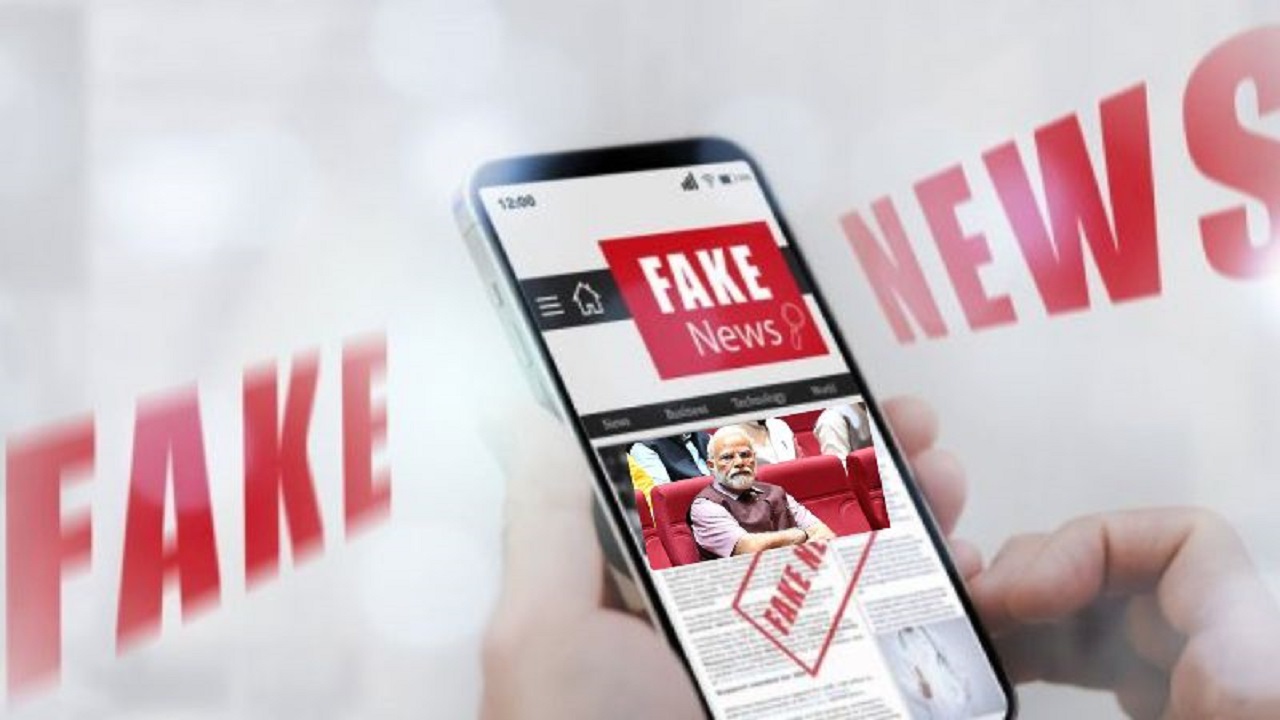India Fuels Misinformation in the Israel-Gaza Conflict

The battleground in the ongoing Israel-Gaza conflict has extended to social media, where both sides are actively engaged in an information war to construct narratives and affect public opinion. It is challenging to discern truth amid chaos in this digital battle, which is characterized by an increase in disinformation. Marc Owen Jones, a digital media and disinformation expert, emphasizes the startling amount of false data flowing, which is worsened by a lack of significant fact-checking in a volatile information environment.
Jones points out an unusual partnership between Indian right-wing accounts and pro-Israel voices, which magnifies information in ways that mirror India’s Islamophobic policies and anti-Muslim rhetoric. “A lot of fake news and widely shared tweets are from Indian journalists, and there are also a lot of Indian journalists now in Israel,” Jones went on to say.
In the current crisis, Jones said Israel “seems unashamed in spreading disinformation, something they have done before but never on this scale.”
The Role of the Indian Right Wing:
According to Bharat Nayak, an Indian journalist and fact-checker, there has been an increase in pro-Israel comments from Indian accounts across key platforms. He emphasizes misinformation methods, such as inaccurate claims that Israel assisted India during the 1999 Kargil conflict and attempts to connect Muslims in India to Hamas’s acts. Nayak highlights how disinformation, particularly on WhatsApp, is intended to promote fear of Muslims among Hindus, particularly in India’s Hindi-speaking region.
India-Israel relations and media coverage:
According to Azad Essa, a South African journalist, the war occurred at a time when India-Israel connections were at their strongest. The massive weaponry acquisitions by India from Israel, as well as its strategic relationship, contribute to a complex media landscape. Essa criticized the Indian mainstream media for extensively leaning on Israeli talking points and clichés, as well as generating and disseminating misinformation.
He said that it only took Prime Minister Narendra Modi a few hours to condemn the Hamas attacks on October 7, paving the way for Indian mainstream media to “both cover this story closely as well as report on it as a matter of national concern.”
“The mainstream media has heavily relied on Israeli talking points, tropes, and disinformation from Israeli sources.” And in certain situations, they have created misinformation themselves,” Essa said.
He said on social media that “thousands of Hindu nationalist trolls have dehumanized Palestinians,” emphasizing that they seized an “opportunity to demonize Muslims in India and link the entire community to terrorism.”
“They see themselves as fighting the same war, whether it is against Muslims in India, Kashmir, or Pakistan.” Love for Israel and being anti-Muslim have therefore become synonymous,” said Essa.
Social Media Challenges:
According to Jones, social media companies face the difficult task of combating hate speech and disinformation while maintaining free expression. The viral propagation of mischaracterized events prior to debunking shapes public perception, making content control essential. Irina Raicu, a digital ethics specialist, outlines how social media algorithms frequently exaggerate fears and impede attempts to combat extremism. She highlights that social media platforms struggle to regulate disinformation, with opposing parties claiming suppression during hot situations such as the Israel-Gaza war.
Censorship Concerns:
Jones expresses worry about potential bias in content moderation. He cited a recent Wall Street Journal investigation that “suggested posts coming out of Palestine were much more likely to be censored for hateful comments than those coming out of Israel.”
“Meta has attempted to remove violent posts from both sides.” However, some claim that it disproportionately limits Palestinian voices. Indeed, there is plenty of historical and contemporary evidence that this is the case,” he stated.
The controversy extends to financial transactions, with Google reportedly taking money from the Israeli Ministry of Foreign Affairs to promote Israel’s propaganda in violation of its rules and conditions.
He highlighted the example of this year’s Web Summit, one of the world’s major internet conferences set to take place in Lisbon this month. The Summit has been subject to a boycott by major corporations as a result of comments made by its previous CEO “critiquing Israel and opposing the massacre of Palestinians.”
“This includes Google and Meta.” “There is certainly plenty of evidence, both technically and politically, that such companies are pro-Israel,” Jones said.
As the Israel-Gaza conflict plays out in the digital era, social media becomes a major battleground for narratives. The rise in deception, coordination among divergent parties, and issues confronting social media platforms highlight the complexities of navigating the information environment during times of crisis. To maintain an educated public conversation among an array of contradictory narratives, the necessity for mindful fact-checking, transparent content control, and an informed understanding of the geopolitical environment becomes more apparent.
ALSO READ: Israel-Gaza Conflict: Instagram Accused Of Censorship Of Pro-Palestinian Posts
PTA Taxes Portal
Find PTA Taxes on All Phones on a Single Page using the PhoneWorld PTA Taxes Portal
Explore NowFollow us on Google News!





